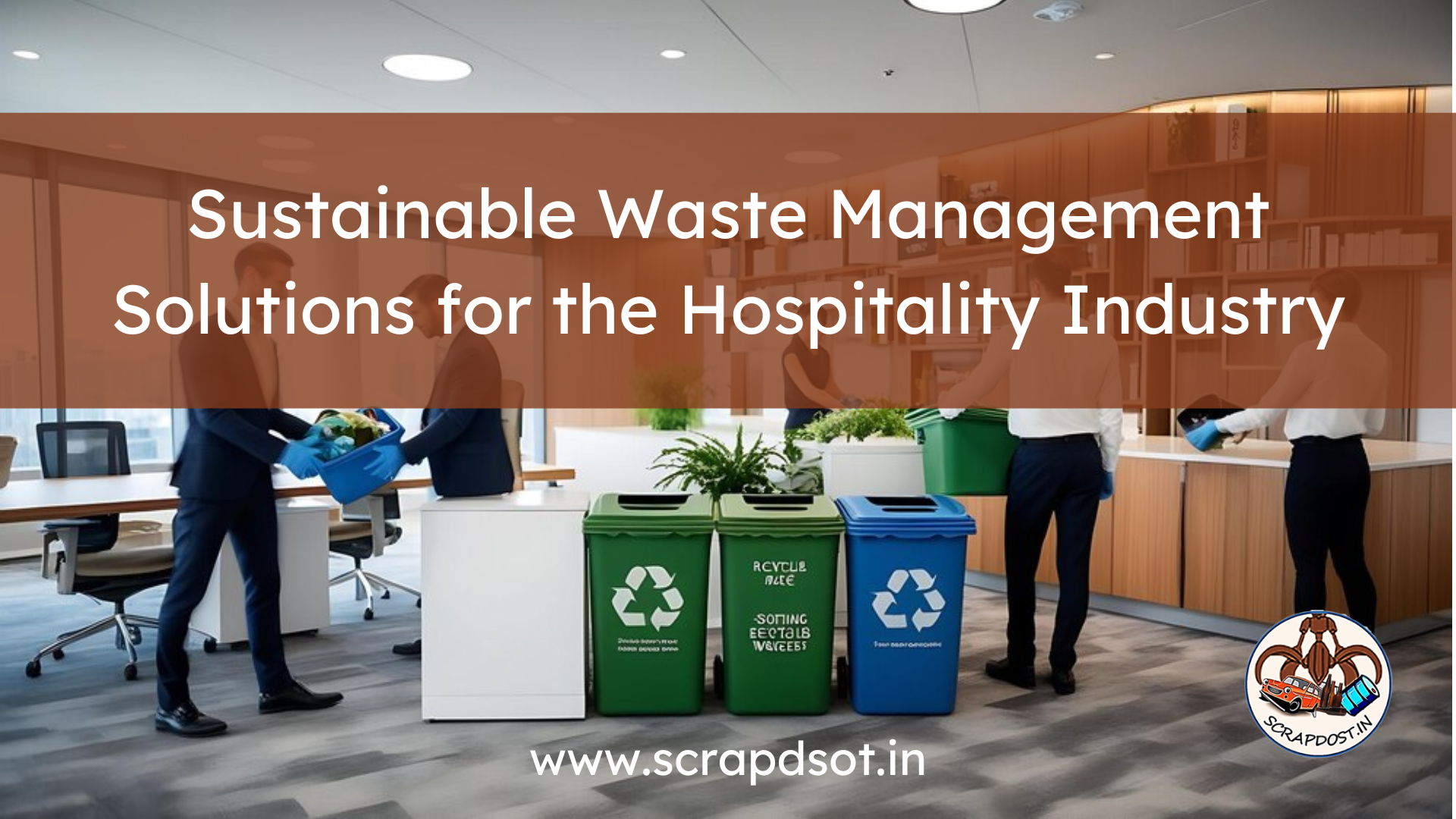The hospitality industry, which is linked to luxury and comfort, has become one of the major sources of waste production. Food waste and packaging waste in containers, trays, cutlery, spoons, forks, towels, and silverware have emerged as major sources of waste in hotels and restaurants. This waste also has the potential to create an aspect of efficiency that may be important to commercial organizations and businesses while at the same time being environmentally friendly. Therefore, the industry needs to implement green waste management practices to help mitigate the negative impact on the environment.
Waste in the hospitality sector can be categorized into several types:

These include leftovers, decaying and infected food, and food particles left inside the cooking section or storage. It takes the form of food waste and contributes more than fifty percent of total waste in hotels and restaurants.
They include plastic bottles, aluminum cans, cardboard boxes, nylon bags, and many others readily identifiable in hospitality locations.
Besides edibles, other samples of organic waste products include such components as vertical garden trimmings and other biodegradable components.
This falls under the non-biodegradable group of materials such as plastic, metal, and glass.
Products such as chemicals, cleanings, and others that may be used in maintaining the framework of the hospitality facilities.
The first approach to sustainable waste management is waste reduction. This can be achieved through measures such as:
Changes to portion control to minimize wastage of foods.
Proper stock management to ensure that there is no excessive accumulation of perishable stock.
Use reusable cutlery, crockery, and linens instead of disposable ones.
Source separation is considered one way of waste management as it ensures that wastes are sorted at their source. Each type of waste should be assigned separate bins to facilitate easy management and proper disposal.
Both food waste and garden waste may be recycled to reduce the utilization of the landfill while at the same time producing compost, which is essential in landscaping and gardening within the estate. This minimizes waste but also promotes a circular economy whereby wastages are utilized in other production cycles.
Setting up a strong recycling environment is another factor that cannot be overlooked. It is possible to recycle such products as glass, metal, and some types of plastics to cut on the raw materials that need to be sourced and the amount of waste left in the environment.
Instead of disposing of food waste, hotels and restaurants can volunteer to donate food to charities or food banks where they serve meals. This cuts costs while at the same time contributing towards solving the issue of hunger within the community.
Advanced management practices include the use of waste-to-energy techniques like anaerobic digestion that turns organic waste into biogas that can be harnessed as energy. This assists in cutting fossil fuel consumption and waste disposal, among other areas.
Raising awareness of staff and guests about waste management and how they can help in improving it has to be done. Training employees, along with effective reporting and communication, can help embed sustainability into the culture of any organization.
The procurement of products that are environmentally friendly and degradable and that are packaged lightly can greatly help in waste management. It also helps to work with suppliers that possess the same level of concern with sustainability.
Technology plays a crucial role in enhancing the efficiency of waste management in the hospitality industry.
These have level indicators that alert workers that the waste bins are full and hence minimize chances of spillage.
A software solution can assist in monitoring the generation of waste and identifying areas that require attention and remedial action.
sophisticated sorting technologies are capable of sorting various forms of waste, thereby enhancing the efficiency of recycling and minimizing exertion.
The use of such apps can help connect hotels with food banks and charities to optimize the process of food donation.
Beyond regulatory requirements, sustainable waste management is the new standard and a moral responsibility in the hospitality industry. Good management of waste shall help in cutting costs, enhancing guests’ experiences, and helping to make a positive impact on the environment.
Scrapdost, with years of experience in waste management, is ready to provide the hospitality industry with efficient solutions. Whether it be the implementation of waste minimization programs or recycling and composting programs, Scrapdost makes sure that your waste is disposed of and processed properly. Scrapdost also ensures that you help in the conservation of the environment and that your brand walks the path of being environmentally conscious.
© 2026 ScrapDost